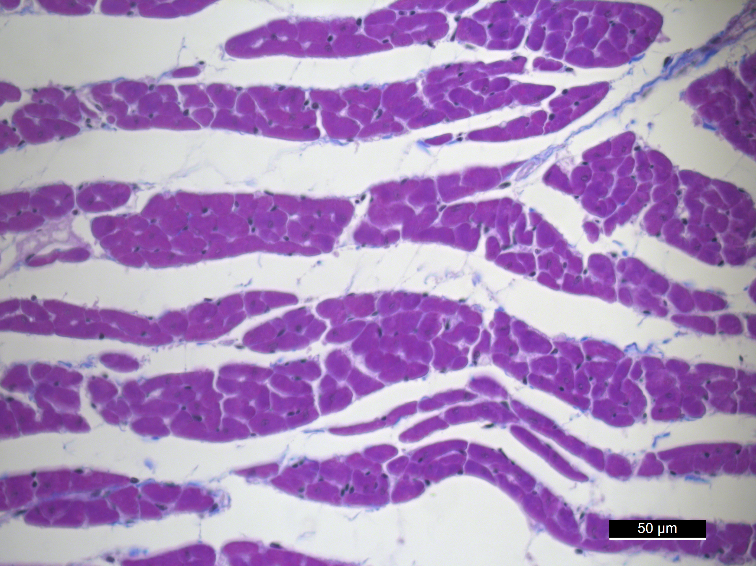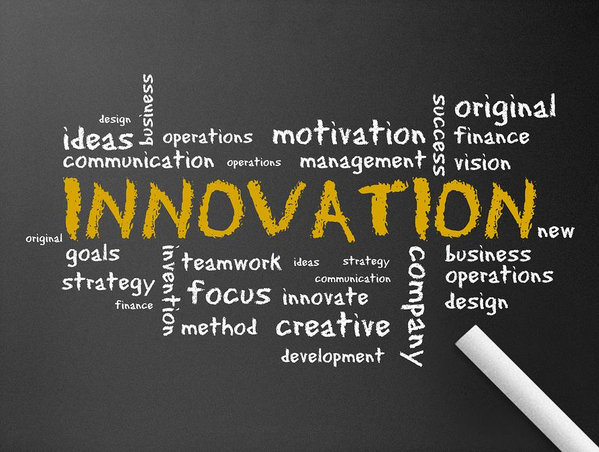
Онлайн регистрация ашық!
Байланыс ақпараттары:
e-mail: seds_admissions@nu.edu.kz
Тел: +7 (7172) 706423
+7 (7172) 694536

Биомедициналық инженерия – бұл клиникалық проблемаларды шешуде қолданылатын пәнаралық мамандық. Бұл пән медициналық терапияға, диагностикалық құралдар және қондырғыларға қатысты. Биомедициналық инженерия саласы Екінші дүниежүзілік соғыстан бастап зерттелуде. Осы саладағы биомедициналық инженерлер қоғамдастығы қол жеткізген заманауи технологиялар мен қосымшалар:
- жасанды ағзалар, оның ішінде кардиостимуляторлар, есту аппараттары, синтетикалық қан тамыры және гемодиализ жүйесі;
- организм жүйелерін компьютерлік модельдеу, оның ішінде бүйрек функцияларының және артериялық қысымды өлшейтін аппараттар;
- медициналық визуализациялау, оның ішінде магнитті-резонанстық томография (МРТ), рентгендік томография, ультрадыбыс, позитронды-эмиссиондық томография және т.б.
Биомедициналық инженерияның басқа да қолданылу аясы: биоматериалдарды әзірлеу, регенеративтік инженерия, спорттық медицина және заманауи терапиялық қондырғылар. Бұдан басқа, смарт технологиядардың денсаулық сақтау саласындағы маңызы арта түсті. Мысалы, смарт технологиялар дәрігерлерге ауруларды диагностикалауда, медициналық көмек көрсетуде аналитикалық деректерді пайдалануға, нақты анализ жасауға мүмкіндік береді. Осы мүмкіндіктердің кейбіреулері биомедициналық инженерлер әзірлеген машиналарда немесе жабдықтарда көрсетілуі мүмкін.

Нарық қажеттіліктері:
Биомедициналық инженерия дәлелдемелерін әлем бойынша қазіргі кезде денсаулық сақтау саласында болып жатқан инновациялық революциядан табуға болады. Ауруханаларда биохимиктермен, медбикелермен, физиктермен, микробиологтармен және техниктермен бірлесіп жұмыс істейтін инженерлер әзірлеген және жасаған, пайдаланылатын құралдар мен машиналар өте көп. Мысалы, пациенттердің дәрі ішуінде пайдаланылатын құрылғылар, жүрек соғу жиілігін байқау үшін пайдаланылатын құралдар, сканерлеу әдістері: дененің ішкі құрылыстарын үлкейтіп көрсететін X-компьютерлік томография және магнитті-резонансты томография. Сонымен қатар, биомедициналық инженерия өнімдерін жүректі бақылайтын, жарақаттану немесе ауыру салдарынан зақым келген ағзаны алмастыратын және тіндер мен ағзалар регенерациясы жүйесінде пайдаланылатын құрылғылардың құрамынан табуға болады. Медицина және денсаулық сақтау саласына заманауи инновацияларды енгізуге дарынды инженерлер атсалысады. Қазақстанның да осы инновациялық қозғалысқа қатысатыны анық. Нәтижесінде, біздің еліміз заманауи медициналық приборлар мен басқа да жабдықтарды шетелден тасымай, өзі шығара алатын болады. Сонымен қатар, Қазақстан биомедициналық инженерияның қазіргі өнімдерін шығарушы және оларды экспорттаушы ретіндегі өз әлеуетін пайдалануы мүмкін.
Бағдарламаның мақсаттары:
- Өмір туралы ғылымдар саласында терең білім алу, аналитикалық / тұжырымдамалық және сыни ойлау қабілетін дамыту. Проблемаларды шешуде инженерлерге тән қабілеттерді дамыту.
- Тірі жүйелерді жасау және оларды сандық өлшеулерге қатысты мәселелерді айқындау.
- Ғылыми эксперименттерді белгілеу және жүргізуді, сондай-ақ сол эксперименттерді талдауды және тұжырымдауды ұйымдастыру.
- Медицина саласындағы проблемаларды анықтау және шешу тәсілдерін қалыптастыру. Адамның денсаулығын жақсартатын қондырғыларды, жүйелер мен процестерді әзірлеуді ұйымдастыру.
- Басқа ғылыми және техникалық сарапшылармен, сондай-ақ дәрігерлермен / клиницистермен қарым-қатынас жасау, бірлесіп тиімді жұмыс жүргізу дағдыларын дамыту.
- Биомедициналық инженерия және медициналық технологиялар саласында жаңа кәсіпорындардың ашылуына немесе құрылуына атсалысу.
Бағдарлама бойынша оқу нәтижелері:
Бағдарламаны сәтті аяқтағанда түлектер:
- Адамдардың денсаулығын жақсарту мақсатында инновациялар мен ғылыми әзірлемелерді зерттеуде жаратылыстану және инженерия ғылымдары жетістіктерін пайдаланады.
- Тиісті эксперименттік, математикалық және статистикалық тәсілдерді пайдаланып, идеяларды, модельдер мен гипотезаларды әзірлейді.
- Эксперимент және модель жасау үшін бірнеше инструментті, есептеу және биолоиялық әдістерді игереді.
- Сыни тұрғыда ойлау қабілетін дамытады, эксперименттер мен үлгілер жасаудың нәтижесінде алынған деректерді талдайды және негізді қорытындылар жасайды.
- Жеке өзі, сол сияқты командада тиімді жұмыс істей алады.

Негізгі курстар:
This course addresses the primary need for graduate students to undertake formal training that will help them in understanding how to conduct their research. The course will develop student’s understanding of research plan and engender skills enhancement for reading, interpreting, writing and presenting key ideas. The course will also instill an understanding of a variety of research methods and ethics, and implement appropriate strategies in lecture and workshop settings.
This graduate level course combines the application of rhetorical analysis to stylistic conventions of writing in engineering, with a focus on clarity, conciseness, and coherence. Students will employ process writing to produce genre specific writing familiar to engineers, including research reports, and scientific papers designed for specific audiences. This course also trains students to deliver effective and appealing professional and scientific presentations, with attention to best practices in use of technical English and oral communication.
This course reviews and deepens the advanced analytical and numerical methods to solve ordinary and partial differential equations. The whole course, lectures and tutorials, will be delivered through a mathematical software package capable of performing symbolical calculations.
The module is designed for graduate students to cover their research needs concerning mathematical modeling via analytical, semi-analytical or numerical techniques.
This course enables students to gain and apply basic research knowledge and skills to select their research projects in Biomedical Engineering. Course will provide to students a series of presentations intended to broaden their understanding of Biomedical Science and Engineering and to provide them with opportunities to interact with scientists and engineers in the field. Presentations will also be given relating to the development of the studentsʼ academic and professional careers. In addition to lectures, each student will prepare a research proposal (assessed by Lead Supervisor, Co-Supervisor and External Examiner) and present one seminar with her/his intended topic of research in front of panel of faculty (Supervisors and extra faculty) and MSc students’ audience.
This course intends to give students the opportunity to develop their Master Thesis research proposal and to develop a thorough literature review on their research topic in Biomedical Engineering. Student will prepare a research proposal (assessed by Lead Supervisor, Co-Supervisor and External Examiner) and present research progress report with her/his intended topic of research in front of panel of faculty (Supervisors and extra faculty).
This course intends to give students the opportunity to fully implement the research proposal and bring it to a conclusion. The course develops the knowledge and skills about planning and conducting independent research at an advanced level, critically analyzing research results, effectively presenting results to a wide audience, and effectively compiling the results in the form of an authoritative thesis.
The course “Biomaterials Science & Engineering” will present an overview of synthetic and natural materials, which are currently used in different areas of biomedical engineering. Structure and function of these materials will be discussed. Special emphasis will be laid on polymeric biomaterials such as polyolefins, poly-urethanes, biodegradable poly-esters and poly-peptides, and crosslinked hydrogel systems. Polymer biomaterials are nowadays encountered in almost all medical subdisciplines such as dentistry, orthopedic surgery, vascular surgery, gynecology, oncology and ophthalmology. Specific examples in these fields will be highlighted. The use of metals in biomedical applications (e.g., titanium and shape-memory alloys) will also be discussed. Furthermore, the concept of “biocompatibility” will be covered with regard to in-vitro and in-vivo applications of biomaterials.
The Biosensors course will provide an interdisciplinary view of biosensors, focusing on the technological aspects, as well as on implementation and applications, with elements of electronics, photonics, surface chemistry, and biology. The course will present electronic biosensors, optical biosensors, biorecognition and functionalization, and applications of biosensors.
This course is designed to cover the most recent advancements in different areas of applications of tissue engineering. The topics in this course will include tissue engineering strategies such as i) compositional, structural and functional analysis of different tissues in human body, ii) design, fabrication and 19 utilization of scaffold biomaterials and iii) cellular engineering including cell therapy, drug delivery; as well as cell-biomaterial interactions. Recent advances and major problems relevant to tissue engineering will also be presented and discussed. Instructor will present relevant topics in the class and guide students when needed. The students should appear in the class as they will be presenting/discussing topics with their classmates. Each student will choose an area of application and advance her/his knowledge in the particular area of tissue engineering. More specifically, the topics in this course will include Research methodology, Recent Progress in Tissue Engineering, Biomaterials, Scaffold design and Manufacturing, Controlled Release, Bone Tissue Engineering, Cartilage Tissue Engineering, Tendon/Ligament Tissue Engineering, Dental Tissue Engineering, Skin Tissue Engineering, Cartilage-bone interface regeneration, Tendon-bone interface regeneration, Tissue Engineering Products in the Market.
The course will discuss the most important contemporary strategies and methods for controlled topical delivery of drugs in clinical practice. The course will focus on the use of advanced devices and biomaterials to achieve the aim of supplying drugs in adequate quantities to target tissues, during an extended time interval. Examples will be abstracted from oncology (e.g., local delivery of cytostatic and/or angiogenic agents to solid tumors), ophthalmology (e.g., delivery of drugs to anterior and posterior parts of the eye), pulmonary drug delivery, etc. Methods to achieve long-duration contraception will be discussed as well. Evidently, emphasis will be put on technical/engineering aspects, such as the use micropump technologies, use of synthetic hydrogel biomaterials in systems for controlled local drug delivery, use of drug-releasing micro- and nanoparticles, transdermal drug delivery, nasal/pulmonary drug delivery, and drug delivery from implanted devices, such as endovascular stents, subcutaneous contraceptive devices, and injected microparticles carrying and locally releasing antineoplastic cytostatic drugs. Master students will be expected to study, in depth, 5-6 recent scientific papers in the field of controlled drug delivery and to present the content of these works in a mini-seminar
The course will discuss contemporary medical devices including innovation and advanced technologies for healthcare, challenges and future opportunities. The focus of the course is on a design and fundamental technologies from both the medical and engineering perspectives. Course will present an introduction of medical devices (electrical and mechanical device) and procedures including. The topics include understanding the needs for specific medical devices, physiology, risks and benefits of medical device design and ethical issues. Examples will be abstracted from sensors, pacemakers, heart valves, implantable cardio devices, mechanical ventilators etc. This course will also cover biocompatibility testing and accelerated age testing of the devices. Course will consist of lectures, case studies and class discussion. There will be a brief oral presentation complete with PowerPoint® slides to the class.
Элективті курстар:
MBME 700 Strategies for Controlled Topical Delivery of Drugs
MBME 701 Microbiology
MBME 702 Diagnostic Methods and Clinical Chemistry
MBME 703 Medical Device Technology
MBME 705 Infectious Diseases and Antimicrobial Strategies
MBME 708 Biomedical Imaging
MBME 709 Mechanics of Living Tissues





